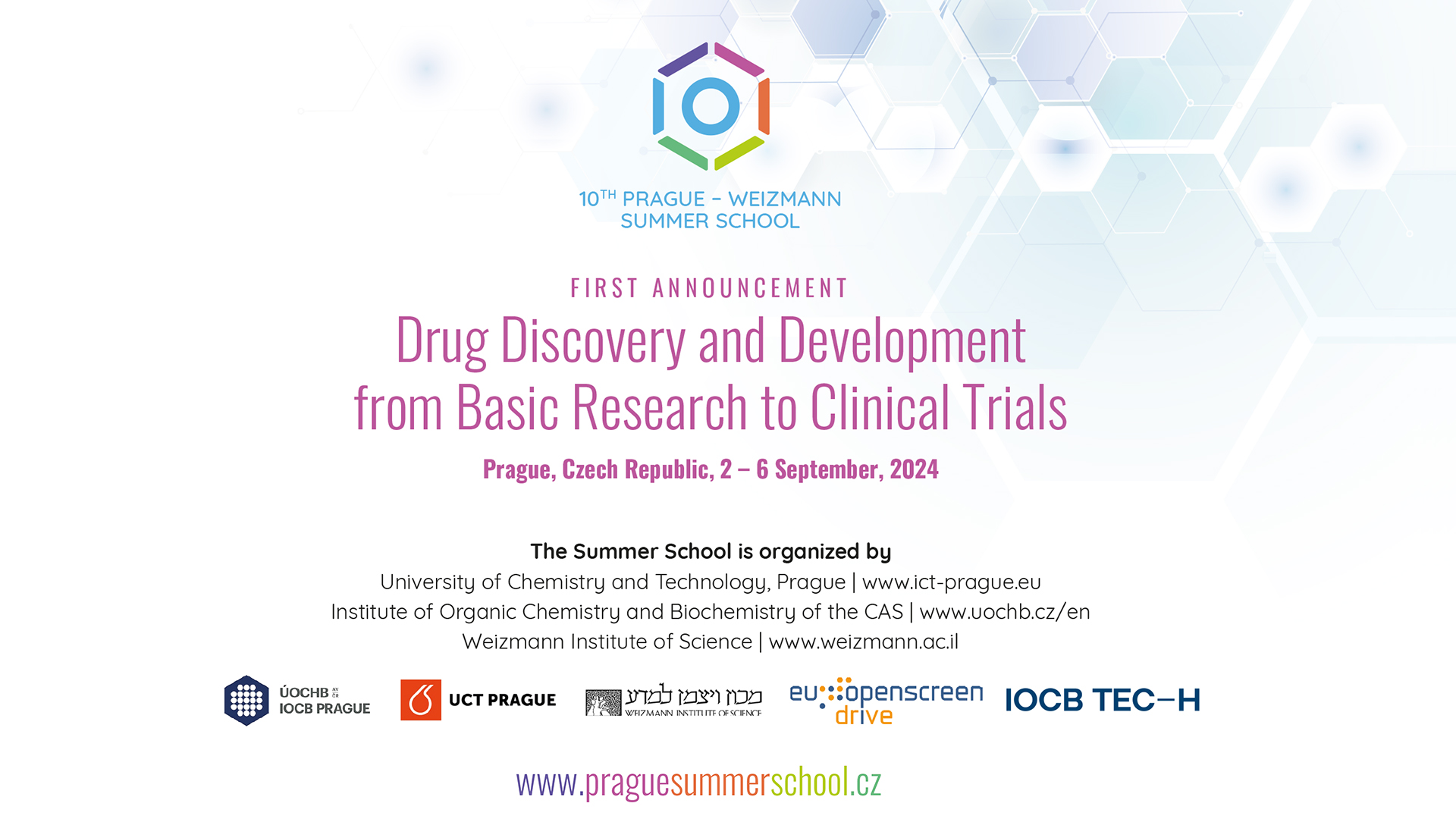On Monday, 2 September 2019, the 6th annual Prague-Weizmann Summer School on Advances in Drug Discovery got underway at the University of Chemistry and Technology, Prague (UCT). The summer school, which runs through September 6, will host more than 130 students, postdocs, and lecturers from all over the world. Traditionally, the summer school has been coorganized by the Institute of Organic Chemistry and Biochemistry of the Czech Academy of Sciences (IOCB Prague) and UCT. Since last year, when it was first held in Israel, the renowned Weizmann Institute of Science has also participated in organizing the summer school.
In addition to the director of IOCB Prague, Zdeněk Hostomský, and UCT vice-rector Pavel Matějka, the commencement ceremony was attended by the Israeli ambassador, Daniel Meron, and deputy industry and trade minister of the Czech Republic Silvana Jirotková.
The school typically focuses on PhD students and postdocs, to whom experts from research institutions and pharmaceutical companies present various topics relating to drug development ranging from basic research and preclinical and clinical development to commercialization and marketing.
“We’re excited that we have, together with our two important partners, succeeded in building a prestigious summer school that continues the tradition of teaching and drug research at UCT Prague,” says one of the founders and organizers of the school Prof. Radek Cibulka of UCT in Prague.
In the previous five years, the summer school has attracted the attention of many international experts and institutions. Since 2018, the Israeli Weizmann Institute of Science has also participated in the project, and the school was first held in Israel the same year.
“I’m very glad we’re developing a partnership with UCT. The great importance of the partnership between the Czech Academy of Sciences and the university is made clear with this summer school,” says founder and coorganizer of the summer school Prof. Martin Fusek of IOCB Prague. “We began with 30 students from the Czech Republic, and now we have 131 participants from 23 countries around the world. We started out in Prague, and now we’ve been joined by one of the most famous scientific institutions in the world, and the school alternates between Prague and Rehovot. Neither of us could do it without the other.”
The significance of the summer school successfully crossing the border of the Czech Republic and teaming up with a leading Israeli institution is also acknowledged by deputy industry and trade minister of the Czech Republic Silvana Jirotková: “In the Czech Republic’s innovation strategy, which is the backbone of our economic future, this is, among other things, about the transfer of excellent results of basic research to commercial practice. Not only is Israel one of our key foreign partners, it’s also a country that’s taken this pragmatic approach to perfection. I’m very pleased to meet with experts who’ve succeeded in multiplying their strengths through partnership and long-term collaboration. I’m also happy that team play has made this an attractive event for participants from nearly two dozen other countries,” said Ms. Jirotková at the commencement ceremony.
This year’s lecturers include important individuals with interesting topics. For instance, participants can look forward to regular participant James D. Engel from the University of Michigan in the United States. He’s sharing interesting results from his work on the discovery and development of drugs for sickle cell disease. Mads Tang Christensen (Novo Nordisk) and his team are trying to find the key to body weight regulation in obese patients, a sort of switch in the brain that reduces a person’s energy expenditure until weight lost through dieting is regained. Prof. Tzvi Livneh of the Weizmann Institute of Science uses enzymes to examine the established mechanisms by which our cells repair DNA damaged on a daily basis by tens of thousands of attacks by solar radiation, smoking, and other factors. These enzymes might be used, for example, in the early detection of lung cancer.







